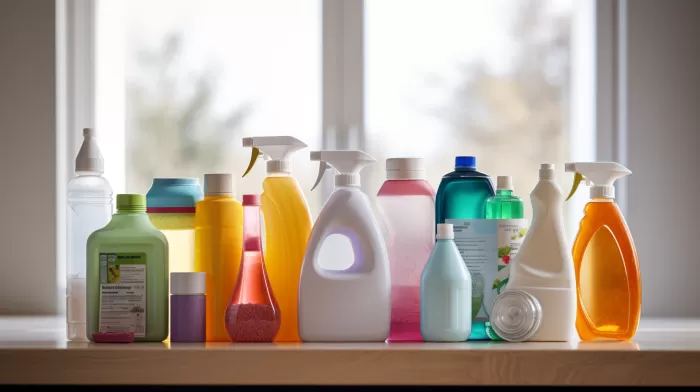Your health is under serious threat from endocrine-disrupting chemicals (EDCs) found in common household products. These chemicals upset the delicate balance of your hormone functions and are responsible for a wide range of health problems, most notably fertility issues experienced by countless individuals worldwide. Studies conducted by researchers in Germany and Denmark have established a direct link between exposure to EDCs in everyday industrial products and adverse effects on human sperm function.
Endocrine Disruptors Everywhere
Endocrine-disrupting chemicals are virtually omnipresent in modern life, lurking in a wide range of sources like clothing, food, medications, cleaning chemicals, cosmetics, soaps, plastic bottles, shampoos, and even children’s toys. The aforementioned study focused on several specific concerns, such as:
- Ultraviolet (UV) filters like 4-methylbenzylidene camphor (4-MBC) found in sunscreens
- The antibacterial chemical Triclosan, used in toothpaste and other personal care products
- Di-n-butylphthalate (DnBP), a widely used plasticizer found in everything from plastic bottles to food packaging
To protect yourself and your family from these harmful chemicals, it’s crucial to understand the how and why of the damage they cause, particularly in terms of fertility.
Serious Impact on Sperm Function
The study’s findings paint a bleak picture: exposure to endocrine-disrupting chemicals has a profound impact on sperm function by causing widespread disruptions to the intricate processes involved in fertilization. More specifically, EDCs increase calcium levels in sperm, which leads to a number of negative outcomes:
- Dysfunctional swimming patterns at the wrong time and place
- Hindered navigation of sperm toward the egg
- Limited penetration into the protective egg coat
All of this means that sperm exposed to EDCs are less able to reach and successfully fertilize eggs, resulting in a higher risk of infertility.
Rising Fertility Problems
Such dire consequences for sperm function are clearly reflected in the steady increase in fertility problems observed throughout Western countries in recent decades. In fact, around one in six couples now experiences issues with conceiving, resulting in a booming fertility treatment industry. In vitro fertilization (IVF) is a primary example; although it offers hope to many aspiring parents, it’s just one element of a much larger fertility puzzle — a puzzle intrinsically linked to our exposure to endocrine-disrupting chemicals. Moreover, high costs and limited success rates can make fertility treatments an arduous and uncertain journey for many couples.
Time for Change
Given the serious, wide-reaching health problems associated with endocrine-disrupting chemicals, it’s more important than ever to take action. We can no longer afford to ignore the potent negative effects these chemicals have on our hormonal systems, particularly in terms of fertility.
To help minimize your exposure to EDCs, consider the following tips:
- Choose organic and unprocessed food whenever possible, as these options have lower levels of pesticides and other harmful compounds
- Switch to natural cleaning products, which often don’t contain endocrine-disrupting chemicals
- Avoid using plastic whenever possible, e.g., with glass or stainless steel containers
- Opt for fragrance-free products, or those that use natural fragrances such as essential oils
- Use only natural, chemical-free personal care products, such as toothpaste and deodorant
Furthermore, it’s essential to raise awareness about the dangers of endocrine-disrupting chemicals and the numerous health problems they cause. Knowledge is power, and by informing others about this issue, you’re helping them make better choices in their own lives.
In conclusion, your health and fertility are being threatened by the prevalence of endocrine-disrupting chemicals in everyday products. It’s time to stand up to these toxic substances, take control of your exposure, and put your health first. Make the switch to natural products and limit your exposure to these chemical threats today.



![8 Simple Rules to Refresh Your Body with a Healthy Cleanse [See Pictures]](https://naturalhealthreserve.com/wp-content/uploads/2024/01/8-rules-healthy-cleanse-slideshow-300x168.webp)